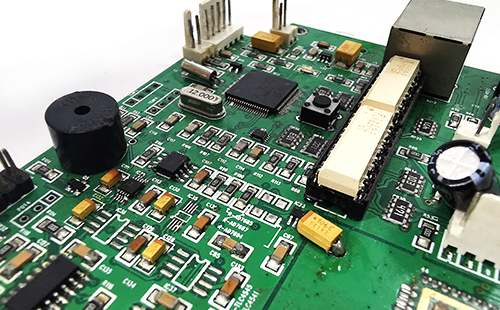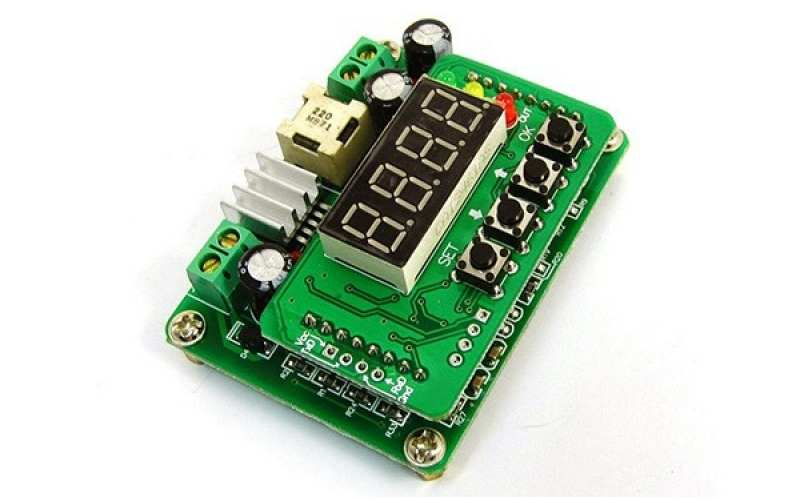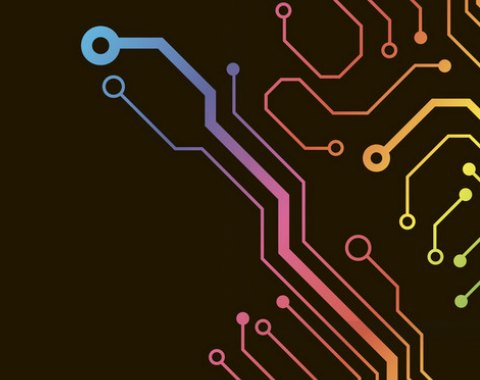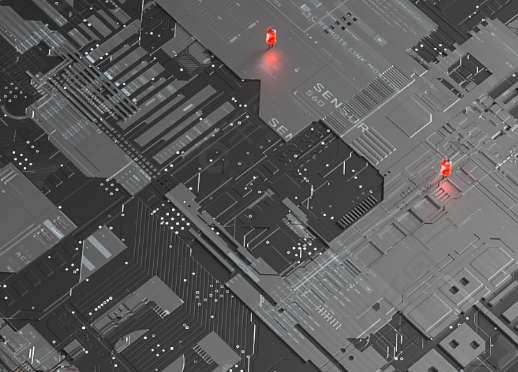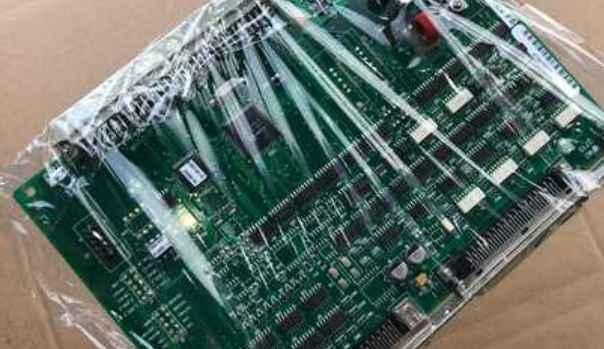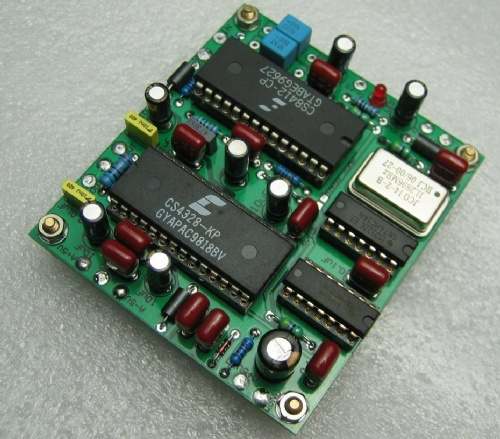
Classified by circuit configuration
In electronic assembly, printed circuit board is a key component. It is equipped with other electronic parts and connected to the circuit to provide a stable circuit working environment. Based on the circuit configuration, it can be divided into three categories:
[Single-sided circuit Board] The metal wiring for the connection of the parts is arranged on the insulated substrate material, which is also the support vehicle for the installation of the parts.
[Double-sided circuit board] When the single-sided circuit is not enough to provide the connection needs of electronic parts, the circuit can be arranged on both sides of the substrate, and the board is laid on the through hole circuit to connect the circuit on both sides of the board.
[Multi-layer circuit board] For more complex application requirements, the circuit can be arranged into a multi-layer structure and pressed together, and the layer-to-layer through hole circuit is laid between the circuits
Processing flow
[inner line] copper foil substrate is cut to size suitable for processing production. Before pressing the substrate film, it is usually necessary to coarse the copper foil on the surface of the substrate properly by brush grinding, micro-etching and other methods, and then attach the dry film photoresist tightly to it at the appropriate temperature and pressure. The substrate pasted with dry film photoresist is sent to the UV exposure machine for exposure. The photoresist will produce polymerization reaction after ultraviolet irradiation in the film transmittance area, and the line image on the negative will be transferred to the dry film photoresist on the surface of the plate. After tearing off the protective adhesive film on the film surface, the development of the unilluminated area on the film surface is removed with sodium carbonate aqueous solution, and then the exposed copper foil is corroded with hydrogen peroxide mixed solution to form a line. Finally, the successful dry film was removed by light sodium oxide water solution.
[Pressing] The finished inner circuit board shall be bonded with glass fiber resin film and outer circuit copper foil. Before pressing, the inner plate needs to be blackened (oxygenated) to passivate the copper surface to increase the insulation; The copper surface of the inner line is roughened so as to produce good adhesion with the film. When overlapping, the inner circuit board above the six layers of the line is riveted in pairs with a riveting machine. Then it is placed neatly between the mirror steel plate with a tray and sent to the vacuum pressing machine to harden and bond the film at the appropriate temperature and pressure. After pressing the PCB circuit board, the target hole drilled by the X-ray automatic positioning drilling machine is used as the reference hole for the line alignment of the inner and outer layers. And the edge of the plate to do appropriate fine cutting, in order to facilitate the subsequent processing

[Drilling] Using CNC drilling machine, the circuit board is drilled out the conduction channel of the interlayer circuit and the fixed hole of the welding parts. During drilling, the circuit board is fixed on the drilling machine table through the previously drilled target hole with the pin. At the same time, the flat lower backing plate (phenolic resin plate or wood pulp plate) and the upper cover plate (aluminum plate) are added to reduce the occurrence of drilling hair
[Plated through hole] After forming the interlayer conduction hole, a metal copper layer should be laid on it to complete the conduction of the interlayer circuit. First, the hair on the hole and the powder in the hole are cleaned by heavy brushing and high pressure washing, and the tin is soaked and attached on the cleaned hole wall
A layer of palladium gum, which is then reduced to palladium metal. The circuit board was immersed in the chemical copper solution, and the copper ion in the solution was deposited on the hole wall by the catalytic action of palladium metal to form the through-hole circuit. Then the copper layer in the through hole is thickened enough to resist subsequent processing and environmental impact by copper sulfate bath electroplating.
[outer line secondary copper] the production of line image transfer is similar to the inner line, but in line etching, it is divided into two production modes: positive film and negative film. The production mode of negative film is similar to that of inner line production, which is completed by directly etching copper and removing film after development. The production mode of positive film is to add copper and tin lead plating twice after development (tin lead in the area will be retained as etching resistance in the later copper etching step), after removing the film with alkaline ammonia water, copper chloride mixed solution to remove the exposed copper foil corrosion, forming a line. Finally, the successful stripping of the tin and lead layer with tin and lead stripping liquid (in the early stage had retained the tin and lead layer, after re-melting used to cover the line as a protective layer, is not used).
[solderproof ink text printing] Earlier green paints were produced by direct heat drying (or ultraviolet irradiation) after screen printing to harden the film. But because of its printing and hardening process often cause green paint penetration into the copper surface of the terminal contact of the line, resulting in parts welding and use of trouble, now in addition to the use of simple circuit board, the use of light sensitive green paint for production.
The text, trademark or part label required by the customer is printed on the board in the form of screen printing, and then the text paint ink is hardened by hot drying (or ultraviolet irradiation).
Welding protection green paint covers most of the copper surface of the line. Only the terminal contacts for parts welding, electrical testing and circuit board insertion are exposed. An appropriate protective layer should be added to the end point to avoid oxides generated at the end point connected to the anode (+) in long-term use, which may affect circuit stability and cause safety concerns.
[Molding cutting] the circuit board to CNC molding machine (or die punch) cut into the size of the customer's requirements. When cutting, the circuit board is fixed on the bed (or mold) with the insert through the positioning hole previously drilled. After cutting the gold finger part and grinding Angle machining to facilitate the use of circuit board insertion. For the circuit board formed by multi - chip more need to open X - shaped fracture line, in order to facilitate customers in the plug-in after segmentation and disassembly. Finally, the dust on the circuit board and the surface of the ion pollutants wash.
[Inspection board packaging] commonly used packaging PE film packaging heat shrinkable film packaging vacuum packaging, etc


